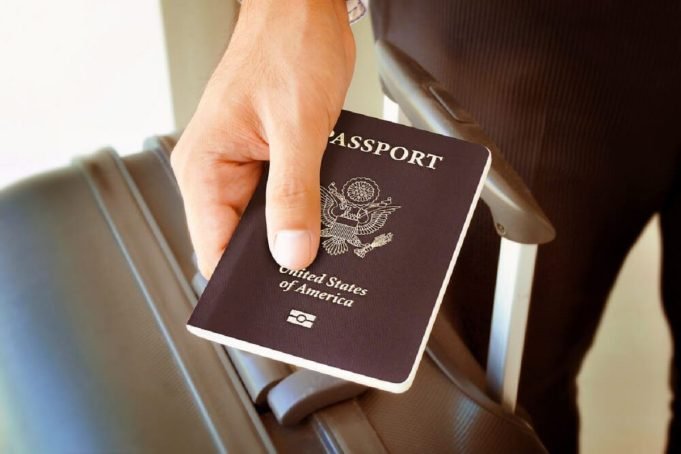When considering post-conviction life, many individuals wonder about the rights and privileges that might be impacted due to their felon status. One frequently asked question pertains to international travel: “Can a felon get a passport?” This query, seemingly simple, has complex layers and is crucial for those hoping to explore the world beyond the borders of their home country or perhaps reconnect with family overseas.
Understanding the travel restrictions for felons is not only beneficial for those with a criminal record but also for their families, legal representatives, and support networks. It ensures that individuals are well-informed, can make appropriate plans, and avoid potential legal complications during travel.
Who Can and Can’t Get a Passport?
Based on a report from USA Today, the majority of felons face no issue obtaining a passport. However, this does not apply to those currently awaiting trial, on probation or parole, or who have restrictions on international travel. Some convictions and situations make a person ineligible for a passport.
Individuals convicted of drug trafficking across international borders are barred from obtaining a passport. Similarly, those with over $2,500 in unpaid child support or certain government loans cannot get one. Help for Felons also states that those convicted of treason are denied a passport.
Read More: Publix Passport
What Crimes Disqualify You From Getting a Passport?
Felonies encompass a broad range of offenses with varying potential consequences upon conviction. While not every felony conviction prevents one from getting a passport, certain ones can make it extremely challenging or even impossible. Both federal and state felony drug offenses related to crossing international borders can hinder you from acquiring a passport. Felony convictions for financial fraud or human trafficking will also bar you from getting one.
There are also other felonies that can lead to disqualification, such as:
- Assault
- Animal cruelty
- Child pornography
- Cybercrime
- Kidnapping
- Sexual Assault
Felony Convictions and International Travel
A felony conviction can affect numerous constitutional rights, such as voting in elections or owning firearms. Additionally, a felony record can hinder future job and housing prospects, a typical outcome in Arizona. The ability of a felon to acquire a US passport and travel overseas varies based on individual circumstances.
Factors affecting a felon’s chances of obtaining a US passport include:
- Nature of the Felony: Although many felons can secure US passports, some felony convictions result in denials. Notable examples are severe drug-related offenses like international drug trafficking or distribution. Committing treason is another crime that might prohibit passport issuance or international travel.
- Case Status: If your criminal case is active, securing a US passport is unattainable. This includes scenarios where there’s an outstanding warrant, unresolved charges, an impending trial, probation, parole, or any other international travel restriction. In such situations, the US government will deny the passport application.
- Intended Destination: Possessing a US passport doesn’t ensure unrestricted international travel. Many nations restrict entry for felons due to safety or political reasons. Before traveling, felons should research the policies of their intended destination regarding felony convictions.
Notably, while not felonies, owing more than $5,000 in child support or having outstanding federal taxes or loans can obstruct passport acquisition. If you had a valid passport before facing criminal charges, the courts might seize it to prevent potential escape. In such cases, applying for a new US passport only becomes possible after the criminal proceedings conclude, including any probation or parole periods.
Read More: A Passport to Global Wellness
How a Felony Charge Impacts Getting a Passport?
Everyone traveling internationally requires a passport. Before traveling, it’s essential to apply for a passport beforehand. In some countries, they mandate that your passport be valid for at least six months before granting entry.
Acquiring a passport is generally straightforward, particularly for those without criminal histories. Yet, individuals with felony charges might find the process more challenging.
While a felony charge doesn’t automatically preclude one from securing a passport, eligibility can depend on the nature of the felony. Certain felony convictions might restrict you from obtaining a U.S. passport. However, if your felony doesn’t specifically hinder passport issuance, you should be eligible to apply.
What Countries Don’t Allow Convicted Felons?
Hold on—just because you obtain a passport doesn’t mean every country will welcome you given your criminal background.
Many countries readily admit felons without any concerns. However, it might be more practical to mention the countries that do have restrictions, including:
- Australia
- Argentina
- China
- Cuba
- Canada
- Iran
- Israel
- India
- Japan
- Kenya
- Macao
- New Zealand
- South Africa
- Taiwan
- United States
- United Kingdom
Read Also: Building an Effective Team in The Workplace
Cases Where a Felon Can Likely Obtain a Passport
Even with a checkered past, many felons still have a chance to explore the world. Here are scenarios where a felon might successfully get a passport:
Completed Sentence and No Travel Restrictions: Once a felon has served their time and is free from travel restrictions, they stand a good chance of obtaining a passport.
Non-international Drug Offenses (with exceptions): While international drug trafficking is a barrier, other drug offenses, especially those limited to domestic scenarios, might not prevent passport acquisition. However, this depends on the specifics of the conviction and subsequent penalties.
Crimes Committed as a Minor: In many cases, crimes committed before turning 18 don’t impact passport eligibility. However, this can vary depending on the severity and specifics of the crime.
Procedure for Applying for a Passport as a Felon
Felons, like any other citizens, need to follow certain procedures to get a passport. Here are the essential steps:
Documentation Needed: Standard requirements include proof of U.S. citizenship (like a birth certificate) and a valid photo ID. Felons may also need court documents related to their conviction, especially if there are questions about travel restrictions.
Disclosure of Felony Convictions: It’s imperative to be honest about any felony convictions when filling out the passport application. False declarations can lead to application denial and further legal consequences.
Anticipating and Responding to Potential Challenges or Inquiries: Felons should be prepared for additional scrutiny. This could involve providing more documentation or answering questions about their past. Having a legal representative or counselor might help navigate these challenges more effectively.
Also Read: 6 Tips for Safeguarding Your Assets
Conclusion
Can A Felon Get A Passport? Embarking on the journey to explore the world can be more intricate for those with a felony record, but the path is not insurmountable. To recap:
- While a felony might pose challenges to obtaining a passport and traveling internationally, it’s not an automatic disqualification.
- A passport allows you to leave your home country, but entering another is at the discretion of that nation, and felons might face additional scrutiny.
- Various factors like the nature of the crime, related travel restrictions, and specific country policies play a role in international travel possibilities for felons.
It’s crucial for individuals with felonies to check their eligibility and not make assumptions. And when in doubt, seeking legal counsel can make all the difference. The world is vast, and with the right preparations, even those with a checkered past can experience its wonders.
Frequently Asked Questions (FAQs)
Here are some example frequently asked questions (FAQs) for the “Can a Felon Get a Passport?”:
Can A Felon Get A Passport?
In the U.S., the freedom to travel is viewed as a fundamental human right. As such, having a prior felony or even multiple felonies typically doesn’t prevent you from obtaining a passport. However, if you have a drug-related conviction, are currently in prison, or if international travel violates your probation or parole conditions, your passport application might be declined or an existing one revoked.
Can a felon travel to [specific country]?
The ability of a felon to travel to a specific country varies based on that country’s entry requirements and the nature of the felony. Some nations, like Canada, have stringent policies regarding certain convictions, while others might be more lenient. Always research and possibly contact the destination’s embassy or consulate for precise information.
Can I Get a Passport On Parole?
Parole provides the opportunity to exit prison ahead of the official release date set by the court, enabling you to reintegrate into society. Nevertheless, there are conditions tied to parole, and breaches can lead to re-imprisonment. This brings up the question, “Can I get a passport on parole?” Typically, individuals on parole are required to finish their parole term before they can apply for a passport.
What happens if a felon tries to apply for a passport without disclosing their conviction?
Honesty is paramount when applying for official documents. Failing to disclose a felony can lead to denial of the passport application. Additionally, it may result in legal consequences or complications in future applications.
How long after completing a sentence can a felon apply for a passport?
In the U.S., there isn’t a specific waiting period post-sentence to apply for a passport. However, other factors, such as parole or probation conditions, unpaid government loans, or certain felony types like international drug trafficking, can affect eligibility. Once any such restrictions are lifted, a felon can generally apply.
















[…] Related: Can a Felon Get a Passport […]
[…] Read More: Can a Felon Get a Passport […]
Comments are closed.